Return of the King
Well if Richard III can make a triumphal comeback after 500 years, so can I, although I admit the circumstances are slightly different. After all the weeping down a hundred telephones, the thousands of letters (many in green crayon) and a petition with almost a million signatures demanding that Jeremy Clarkson be given my job (surely some mistake – Ed), I have decided to continue to write this monthly missive for the outstanding organ that is Shots.
I quickly realised I would miss the intellectual rigor of the wondrous output of crime fiction and the cerebral challenge of sifting the wheat from the chaff and bringing my recommendations to the attention of a loyal readership. I can think of no other reason why I should continue to undertake this duty, for it certainly is not for financial reward or public honours. It is a hard and lonely life and it often baffles me why I do it.

Few people realise the amount of travel and disruption which comes with the job. It is all very well for the young tearaways of crime fiction punditry such as Captain Jack Kerridge, the cosmopolitan Peter Guttridge and the ubiquitous Professor Forshaw, to gad about the country appearing at literary festivals, judging competitions and often undertaking delicate embassies abroad, but not for a gentleman of advancing years and multiple infirmities.
I did however make a rare exception recently and attended the excellent Penguin Crime Party where I took great pleasure in meeting up with my old chumette Jessica Mann of the Literary Review, and Kiwi crime blogger Craig Sisterson. I had instant sympathy for Jessica for whilst globe-trotting Craig was able to drop in from New Zealand, poor Jessica had to suffer the railway journey from Cornwall.

Going German
In the last two weeks I have read two of the best thrillers I am likely to read this year. Both will be published this month, both are set during WWII, both feature detectives who are serving officers in different parts of the Nazi war machine and both authors, over roughly the same number of books, have switched back and forth over time to narrate their protagonists’ careers from the 1930s.
 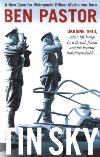
Philip Kerr’s The Lady From Zagreb [Quercus] is the ninth novel to feature Bernie Gunther, the former private eye, hotel detective and policeman in 1930s Berlin now surviving on his wits at the heart of the Nazi state. Ben Pastor’s Tin Sky [Bitter Lemon] is the fourth of her Martin von Bora books to be published in the UK, though I am delighted to say there are four or five more waiting in the wings, previously published in Italy.
Comparisons are inevitable, and whilst Gunther and Bora are distinctly different characters, both are very human and both keen on surviving the horrors being perpetrated around them. Gunther is a streetwise, professional detective who has been reluctantly drawn into the Nazi war machine (and the SS). Bora is an aristocrat, a Catholic and a professional soldier reluctantly doing his duty for a regime he despises and showing himself to be an intuitive detective whenever injustice needs investigating – as you can imagine in Nazi Germany, if often does.
Both characters are superbly drawn, noble, heroic and sympathetic and the historical background to both series is fantastically detailed and interwoven seamlessly into the story. If comparisons with other detectives are required, Bernie Gunther is clearly in the mould of Chandler’s Philip Marlowe, whereas the less sardonic, conscience-troubled Bora is more reminiscent of Maigret, though a Maigret not averse to dealing out his own brand of violent justice when the need arises.
Both these new novels, and the series behind them, are highly recommended and I have reviewed them both in SHOTS: Tin Sky & The Lady From Zagreb - enjoy.
Going Dutch
I don’t know if life generally follows art, but Premier League football seems to follow the latest trends in crime fiction, if the number of Dutch football managers is anything to go by, which of course it isn’t.
Mysteries set in Holland are not new and books by Nicolas Freeling and Janwillem van der Wetering were required reading back in the day. More recently, David Hewson has used Holland (along with Spain, Italy and Denmark) as a setting and this year brings two more claimants to the throne of Dutch detection, both aiming to make Amsterdam the murder capital of Europe.

Into the Night from Penguin, is actually the second instalment of Jake Woodhouse’s ‘Amsterdam Quartet’ and features his Inspector Jaap Rykel. On the strength on one previous novel, no less a figure than Professor Barry Forshaw has labelledthis as “set to be one of the key sequences in modern crime fiction”. And how can one argue with the Professor’s considered view? (Well one can, but as anything which moves him south from Scandinavia is to be welcomed; one won’t.)
From Mulholland Books in May comes Lives Lost, which I believe is the first novel from the writing partnership behind the name ‘Britta Bolt’ – South African novelist Rodney Bolt and German lawyer Britta Böhler.
The main protagonist in Lives Lost is called Pieter Posthumus, which makes it the second novel I have read featuring a character called Posthumus – the other being one I wrote about the Boudican revolt against Imperial Rome in 60-61AD in which Poenius Posthumus, the acting commander of the II Legion made a rather inglorious cameo appearance.
Not Bored At All
The actor George Sanders (1906-72) was not only known for memorable movies such as Rebecca, Samson and Delilah, All About Eve, Village of the Damned (based on John Wyndham’s The Midwich Cuckoos), A Shot in the Dark and Man Hunt (based on Geoffrey Household’s classic Rogue Male), as well as providing the voice of Shere Khan in Disney’s The Jungle Book, but also for his memorable suicide note which began: “Dear World, I am leaving you because I am bored.”
I knew that Sanders had appeared on film as Leslie Charteris’ ‘The Saint’ in the late 1930s, and that he had taken on the role of The Gay Falcon (supposedly a replacement for ‘The Saint’) in the 1940s, but I was not aware until recently that he also had a reputation as a crime-writer.
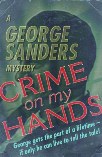 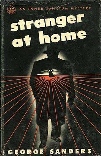
I learn from Rupert Heath of new imprint Dean Street Press that he intends to reissue two George Sanders mysteries from 1944 and 1946, although sadly only in electronic form, not as real books. What is particularly interesting about these titles is not that they were written by the smooth-voiced actor, because they weren’t. His ghost-writers were, however, very interesting indeed, even though their identities were revealed years ago. Both were American females – and females with excellent track records in mystery fiction.
Crime on My Hands was actually written by Craig Rice (1908-57) who was known as ‘the Dorothy Parker of detective fiction’ and apart from writing some excellent crime novels under her own (assumed) name, she also scripted two ‘Falcon’ films for Sanders. Stranger at Home was penned by Leigh Brackett (1915-78), a noted writer of both crime and science-fiction, who also contributed to the scripting of The Big Sleep, Rio Bravo and, shortly before her death, The Empire Strikes Back.
Curiously enough, the subject of George Sanders cropped up at the recent Penguin party in a side-bar conversation with critics Jessica Mann and Professor Barry Forshaw. Even more spookily, the excellent South American website Una plaga de espias chose that very week to feature Spanish versions of the novel and film The Kremlin Letter, which just happened to be one of the last (if not the last) big screen role for George Sanders – and a quite unusual one, if you’ve seen John Huston’s 1970 film!
 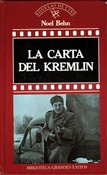
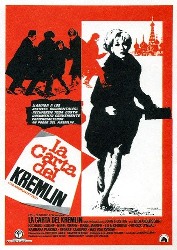 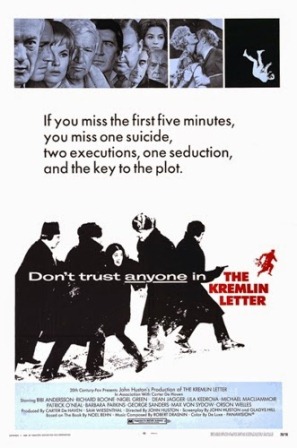
Noel Behn’s bestselling thriller The Kremlin Letter is one of the forgotten landmarks of spy fiction which caused quite a stir when first published – I bought my now much-thumbed copy in 1968 – and as far as I can tell has long been out of print. The author, Noel Behn (1928-98) who had a background in US Intelligence was a leading light in off-Broadway theatre and his output of fiction was very small but on the high standard set by this, his first, novel and by his gripping WWII thriller The Shadowboxer, he certainly does not deserve to be forgotten.
I know that Professor Forshaw is a fan of Behn’s convoluted spy novel for it was he who, last year, sent me a copy of the film version on a small shiny ‘DVD’ record. He did not, however, specify as to which speed I should play it at – 78 rpm or 33 rpm, Barry?
Sadly Missed
I am genuinely distraught that I will be unable to attend the Memorial Service for the late P.D. James in London later this month.
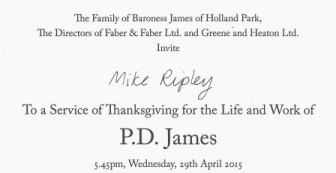
It was an honour to be invited and only the fact that I will be out of the country prevents me from attending.
And Yet Another Award Goes To…
News this month of yet more awards for crime fiction with the announcement of short lists for the Barry Awards run by the excellent Deadly Pleasures magazine for the best books of 2015 (surely, a little early?) in four main categories: best novel, best first novel, best paperback original and best thriller. {Could a superbly thrilling first novel which is better than anything else this year and is published as a paperback original, scoop all four?}
The Petrona Award (for Scandinavian crime fiction, which really doesn’t get the attention it deserves) shortlist is now published along with the Strand Magazine’s Critics’ Awards for Best Novel and First Novel.
And a long, and very strict, short list for short fiction has been announced for the Derringer Awards, which will honour the Best Flash Fiction (up to 1,000 words), Best Short Story (1,001(!) to 4,000 words), Best Long Story (4,001(!) to 8,000 words) and Best Novelette (8,001(!) to 20,000 words). Where would we be without a word-counter?
Is anyone counting the number of awards?
Carry On Spying
I feel no particular shame in not having heard of a spy, even when they have turned their hand to spy fiction. After all, spies are supposed to be secretive and though there are famous examples of spy-fi writers who were ‘in the business’ (John Le Carré, Stella Rimington, Charles McCarry et al) soldier and spy Alexander Wilson, who wrote spy novels between 1928 and 1940, had successfully managed to maintain his cover as far as I was concerned; until now, that is.
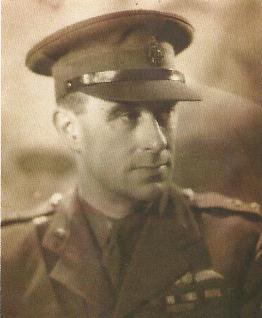 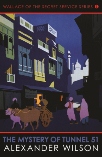
Wilson had, it seems a colourful private life and was clearly good at keeping secrets from his multiple wives and families. It is also likely that during WWII he was dismissed from British Intelligence for gross misconduct (rather than being a mole as was popular at the time), but all that came after a successful career as a writer, producing nine spy thrillers featuring spymaster Sir Leonard Wallace which are to be republished by Allison & Busby over the next 18 months.
In all, Alexander Wilson (1893-1963) wrote two dozen thrillers, though nothing, I think, after 1940, and his name is curiously absent from any of the standard reference works on the genre, including Donald McCormick’s Who’s Who inSpy Fiction and the invaluable website Spy Guys’n Gals. His ‘Wallace of the Secret Service’ novels were, it seems, his most acclaimed work and Allison & Busby begin their revival this month with very attractive editions of The Mystery of Tunnel 51, The Devil’s Cocktail and Wallace of the Secret Service.
I have had a sneak preview of The Mystery of Tunnel 51 and have to say that it holds up remarkably well for an 88-year-old thriller. The initial set-up is part spy novel (in the Buchan/Kipling tradition) but also part ‘locked room mystery’ – or more accurately, ‘locked tunnel’.
The setting is India and we are, once again, playing the Great Game defending this jewel in the Imperial crown from the grasping Russians who by 1928 are, of course, Bolsheviks. A British army agent, Major Elliott, has spent ten months in the Himalayas drawing up comprehensive plans of the defences of India against invasion. Despite several attempts on his life, he makes it to the hill station of Simla but from there has to travel down to Delhi to report to the Viceroy, which he decides to do by ‘Rail Motor’ – a sort of bus which ran on the spectacular narrow gauge railway from Simla to Kalka and which, in 1928, would have been the bees’ knees in state of the art transportation. Despite his handful of fellow passengers being known or at least familiar, Elliott is murdered in the dark whilst the Rail Motor passes through one of the many tunnels (number 51 to be precise) on its descent from the hills. The detailed plans Elliott was carrying subsequently go missing and the call goes out for Sir Leonard Wallace of the Intelligence Department to come and investigate. Wallace arrives with almost indecent haste from London in a spectacular five days, although news of his coming does not sit well with the Indian (British) police chief on the spot who feels that the Viceroy has sent for “a picturesque, out-of-a-novel sort of detective to supersede me.”

When Alexander Wilson was writing, there were plenty of picturesque, out-of-a-novel detectives around; in fact their numbers were rapidly multiplying. Poirot, Peter Wimsey, Richard Hannay and Bulldog Drummond already had impressive track records; Roger Sheringham, Albert Campion, Ellery Queen, Simon Templar and many others were waiting in the wings.
Enter spymaster Sir Leonard Wallace in The Mystery of Tunnel 51 in the first of a series of adventures that were to run through the 1930s up to the outbreak of WWII, when author Wilson began his real-life career in British Intelligence, though it did not last long and seems to have also ended his writing career.
|
|
Full Fathom Five
I may be quoting from The Tempest but I don’t think there are any actual tempests in a new brace of thrillers with distinct nautical themes.

Pauline Rowson has carved her own personal niche (or should that be ‘berth’?) over the years with a series of maritime mysteries featuring Detective Inspector Andy Horton set on the south coast of England. Her new novel, just out from Severn House, stays on the south coast – initially the Isle of Wight – but introduces a new hero, former marine commando and Special Boat Service officer Art Marvik in Silent Running.
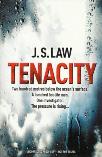
Author J.S. Law has a very naval setting for his debut novel Tenacity, which will be published by Headline in July and begins with the rape and murder of the pregnant wife of a sailor serving on the nuclear submarine HMS Tenacity. When the sailor husband commits suicide on board the Tenacity, Lt Dan Lewis of the Royal Navy’s ominously-name Special Investigation Branch’s KILL team, is sent on board to investigate. A suspicious death in a confined space several hundred feet beneath the waves with a hundred suspicious males, is an interesting situation for Lt Dan(ielle) Lewis to find herself in.
You say Omelet, I say Omelette
The recently-published Mystery Writers of America Cookbook (edited by Kate White, from Quirk Books) collects, as you might guess from the title, favourite recipes from American mystery writers, some of which feature in their fiction.
One of the recipes (to be honest, the only one I’ve seen) is for a ‘Three-Egg Omelet (sic)’ and the ingredients are listed as: 3 eggs, a couple of pats of butter, 3 tablespoons of milk, salt and pepper.
What caught my eye in this relatively simple recipe, apart from the strange way of spelling ‘omelette’ was, of course, the use of milk. I was brought up firmly in the tradition that scrambled eggs required the addition of milk whilst the best omelettes were made with a splash of water.
I cite as my source Len Deighton’s textbook recipe from his 1967 Action Cook Book which even gave the invaluable tip that the amount of water required (for a two-egg omelette) can be measured in half an egg-shell.

Outcast of the Islands?
I have been a fan of Thomas Mogford’s Spike Sanguinetti books since the series started in 2012, selfishly because I regard them as a holiday around the islands of the Mediterranean without the hassle of dealing with Ryan Air.
Mogford’s protagonist is a Gibraltar-based lawyer who – luckily for us – gets involved in cases which take him island-hopping across the Med and in Sleeping Dogs, out this month from Bloomsbury, his sleuthing activities take him to the Greek island of Corfu and the Albanian mainland.
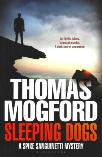
They say travel broadens the mind. So does crime fiction – and normally you don’t lose your luggage.
And speaking of travel broadening the mind,I am dying to see if that works on the Nordic mind (it should; after all the Vikings were great travellers and fairly broad-minded) when one of Sweden’s most popular crime-writers Håken Nesser has a new book The Living and the Dead in Winsford published here by Mantle in July.
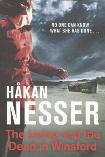
My interest was piqued at the very title, assuming that this must be a mystery set in (possibly literally) the famous rock salt mines of Winsford in Cheshire. I was, of course, wrong for it seems there is another Winsford, in the Exmoor National Park. It is this Winsford that is the location for Nesser’s new stand-alone psychological thriller and after being treated for many, many years to the bright lights, folksy charm and lightning wit of crime fiction set in Scandinavia, it will be fascinating to see what a leading Scandi-crime exponent makes of our very own dour and dimly-lit Somerset.
Serial Killers, Highly Recommended
I must admit that these days I rarely get excited about yet another serial killer thriller, which must be a factor of great age, with which comes increased squeamishness. I am, however, determined to try Signature Kill, published by Bantam this month, for the author holds the rare distinction of being able to boast a cover blurb by none other than Lee Child.
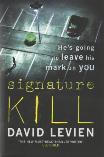
Described by Lee as “The must-read thriller writer”, David Levien is also a noted Hollywood scriptwriter, his credits including John Grisham’s Runaway Jury and George Clooney’s ‘rat-pack’ vehicle Ocean’s 13 and if Lee Child tells me I must read him, then I must. I always do what Lee tells me.
Just as I am wary these days of any book purporting to add something new to the exhaustive (and exhausting) canon of fictional serial killing, I also have to admit that I am suffering battle fatigue from seeing dust jacket blurbs which begin: How far would you go…
Right on cue comes Woman of the Dead published next week by Weidenfeld & Nicolson, a book which, I am told, has set Europe ablaze under its original German title Totenfrau.

The author, Bernard Aichner, is, I believe, Austrian and as part of his research for this novel, he is said to have worked as an undertaker’s assistant for six months. That should come as a warning to readers of a more delicate persuasion and will strike a familiar chord with viewers of the American television series Six Feet Under, not to mention the series Dexter. There are – though it may be stretching a point – echoes of the avenging dark angel played by Uma Thurman in Kill Bill and to the horrific real-life case of Josef Fritzl when it comes to sex-slaves and cellars.
The avenging fury of the title, who prefers to be known simply as Blum, really is a ‘Death Woman’ as not only is she an undertaker, but we know she is a bit of a psychopath even before she sets out on a murder spree to avenge the death of her (policeman) husband. Blum turns out to be remarkably lucky in tracking down the five members of a ghastly club who imprison, torture and rape young girls and boys (one of them, unnervingly, yodelling whilst he does so); even luckier when it comes to executing them and disposing of their bodies with casual professionalism.
Blum is not a character anyone can really like or sympathise with and her blood-spattered adventures (be warned…) are almost dreamlike at times as she zips across the Tyrolean countryside either on a motorbike or in a 1972 Cadillac hearse – painted white! – proving that those hills are far from alive with the sound of music. If revenge is supposed to be a dish served cold, this is revenge served up with a warm chainsaw.
From the creator of ‘Callan’
Many a crime writer would happily make a deal with the Devil at a crossroads at midnight in order to create just one really memorable central character. The late James Mitchell (1926-2002) created four: John Craig, the very tough, tortured spy seen as a genuine successor to James Bond after Ian Fleming’s death; David Callan, the sardonic, decidedly downbeat assassin superbly good at a job he hates; Jack Ford, the wily class-warrior hero of the Depression-hit north-east in the television series When the Boat Comes In; and then, in the 1980s, the Anglo-Italian private eye Tomasso Ronald Hogget.
 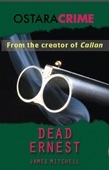 
Although possibly the least well-known of Mitchell’s creations, the three adventures featuring Ron Hogget – Sometimes You Could Die, Dead Ernest and Dying Day – were, on first publication, all greeted with enthusiasm by the critics, including Allen J. Hubin in America and in Britian: Alan Prior (Daily Mail), Christopher Wordsworth (Observer), Graham Lord (Sunday Express) and John Coleman (Sunday Times).
Hogget is the sort of private eye who leads a First Class, jet-setting life - but only if he can claim it on expenses. He’s not the bravest and if there’s a hint of rough stuff (which there usually is) he takes along a minder, the ex-paratrooper turned philosophy-reading mini-cab driver Dave Baxter. The Hogget-Baxter double act is a lighter mirror-image of the famous Callan/Lonely relationship and whilst the books are less dark and less sardonic than Mitchell’s Callan books (and scripts), they are no less pacey, in fact they positively zip along.
They are of their time; a time only thirty years ago, when male heroes relished fine food, vast amounts of alcohol and travel by Concorde and the women were all stunningly beautiful and expensively dressed; when nobody had a mobile phone and computers were things of wonder only tax-inspectors used. All three of James Mitchell’s Ron Hogget novels are republished this month by Ostara (www.ostarapublishing.co.uk).
Fairy Tale
Until recently my knowledge of Romania was limited to the time when under Imperial Rome it was known as Felix Dacia – or ‘Happy Dacia’, though I suspect the epithet ‘happy’ applied more to the Roman rulers than the local population.
However, I think I have more than trebled my understanding of modern Romania thanks to a fairy tale in the form of a crime novel. In fact Greuceanu-Novel With A Policeman, now smoothly translated and published here by Profusion Gold, is author Stelian Turlea’s re-working of a classic Romanian fairy tale, transposing the story of ogres and damsels-in-distress to a small provincial town in the grip of diamond-smuggling gangsters.
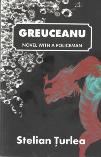 
As in all the best fairy tales, the brave hero (in this case a humble policeman rather than a Prince Charming) defeats the baddies and gets the girl and although it’s a happy ending, Stelian Turlea doesn’t pull his punches when it comes to describing the grim side of a modern Romania still suffering a hangover from a ruthless socialist dictatorship and now enjoying the benefits of capitalist organised crime.
I am sure I will have missed most of the direct analogies to present-day Romanian politics and culture, but the editors wisely provide some fascinating footnotes, from which I learned a lot, including a few useful words in Romanian. I will make a point the next the subject of the Ottoman Empire crops up in polite conversation to slip in the word ‘sictir’ (from the Turkish ‘sikdir’) just to see what reaction I get.
Flush As May
I already have a substantial pile of TBRs (to-be-read) which will be published in May and two in particular keep catching my eye.
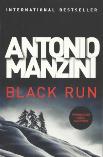
The first is Black Run from 4th Estate by an Italian author, Antonio Manzini, new to me and, I think, new to English translation, although on that score Signor Manzini is on safe ground as he has the services of the experienced Antony Shugaar as his translator.
Black Run is set in the Val d’Aosta region of north-west Italy in the Alps (roughly due north of Turin), a popular destination for skiers but not so attractive to Deputy Police Chief Rocco Schiavone, who is sulking after being exiled from his beloved Rome for getting on the wrong side of the wrong people. When first published in Italian in 2013, one European reviewer likened the unruly and corrupt Rocco Schiavone to James Ellroy’s Dudley Smith from L.A. Confidential whilst another called him ‘as bad a cop as Lt Kojak’. I am, naturally, intrigued.
I am also intrigued by what will be my first taste of Tony Parsons as a crime-writer in his second thriller The Slaughter Man (yes, it’s another serial killer) from publisher Century.
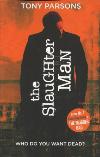
I am especially intrigued because although I declared myself keen to read his first crime novel, The Murder Bag, last year, I must have been the only crime critic in Christendom not sent a copy.
However, the book which has easily forced its way to the top of my TRB pile is Thieves Fall Out, the 1953 “lost” pulp novel by ‘Cameron Kay’ – or the late, great Gore Vidal, as he was better known, published by Hard Case Crime/Titan Books.

Some years ago, in a fit of light-headedness, I told an inquisitive journalist that Gore Vidal and I regularly played darts together, having been introduced by Auberon Waugh during a tasting of Bergerac Blanc (then quite a difficult wine to get hold of) in the Academy Club. I may have stretched the truth slightly, but I distinctly remember Bron Waugh and I discussing our ideal darts-partners during that excellent tasting, and I am pretty sure Vidal’s name came up.
Of course the story soon got out of hand and a mangled version eventually appeared on a Gore Vidal website, although I am quite sure Vidal never knew he had a website dedicate to him.
Suffice it to say, I was a great admirer of all Gore Vidal’s work, including the excellent detective stories (which he owned up to) he wrote under the name Edgar Box.
Toodles!
The Ripster
|